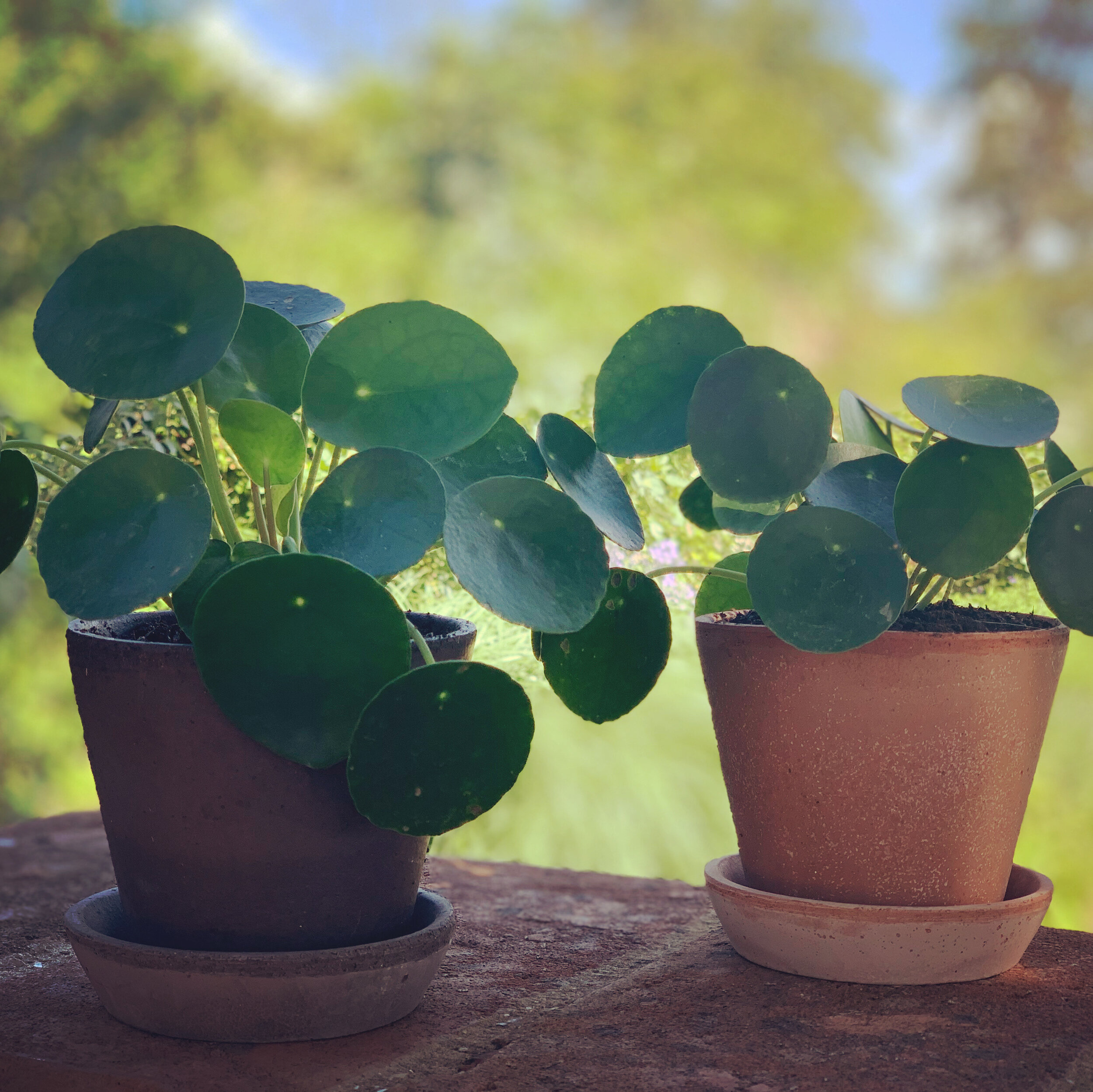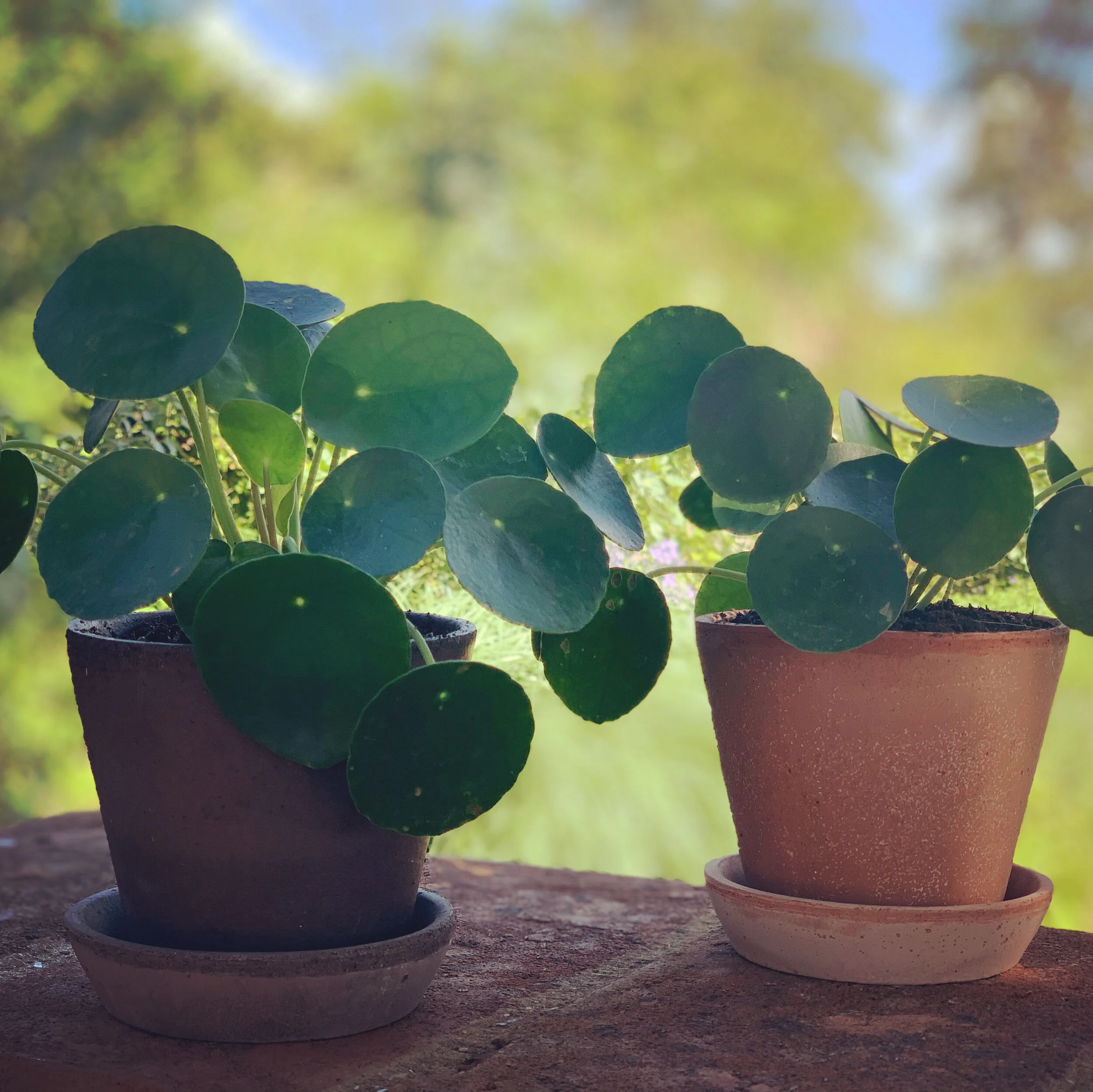Recently we were thrilled to discover The Glasshouse Botanic Design, an interior landscaping company working from glasshouses within UK prisons, helping ex-offenders to learn valuable horticulture skills.
We chatted to Kali Hamerton-Stove the Project Director of The Glasshouse Botanic Design to hear more about this vital initiative.
What a great initiative you have set up. Have you always worked with plants?
We have always loved plants and particularly mixing plants with interiors in our homes and workplaces, but no, we definitely haven't always worked with plants at all! Melissa is social entrepreneur and I have a background in public relations.
Can you tell us what inspired you to start The Glasshouse Botanic Design and how you come to be working out of a glasshouse in a prison?
The inspiration for The Glasshouse came directly from the many disused greenhouses in prisons across the UK and the many issues ex-offenders experience when returning to society that lead high rates of reoffending. It has been found that safe housing and gainful, regular employment can decrease re-offending dramatically.
Whilst helping with a returning citizen programme at East Sutton Park prison, Melissa noticed that there were quite a few disused greenhouses and poly tunnels. We started talking to the prison about the horticultural opportunities and felt like there was a great opportunity utilising the greenhouses to run a social enterprise, whilst training women in prison and employing women upon release. The MOJ (Ministry of Justice) has been incredibly supportive of the project as well.
We actually started our research, thinking we would create a retail business but we felt that there was a much more interesting and suitable opportunity working in interior landscaping and plant maintenance. We put together an incredible board of advisors and I am completing a course in interior landscaping, focusing on biophilic design.
Do many prisons in the UK offer the horticultural experiences that you are providing?
Agricultural programmes in the prison system have fallen in and out of favour, but there have been some policy changes and big cuts in the last decade. Whilst some prisons continue to offer some training programmes, such as animal husbandry, there don't seem to be many horticultural qualification programmes remaining. We have started with East Sutton Park prison, an open women's prison in Kent, but we hope to expand to more prisons next year.
What skills do the prisoners learn when they are with you?
The Glasshouse horticultural training programme allows the women to maintain, propagate, treat and work with indoor plants. They can work toward and achieve their level 2 RHS horticultural qualification, the most recognised certification in the industry and a basic requirement for many horticultural jobs. Topics covered include plant growth, propagation, and development as well as design, planning, establishment and maintenance. Whilst women might work primarily with indoor plants, the knowledge and experience can easily be applied to gardens - we envision many women choosing to work in outdoor horticulture.
What are the long term effects and benefits for the ex-offenders, extending to their lives after their sentence has ended?
The long term effects and benefits are immense, not to mention the incredible emotional and physical short term benefits of working with plants and learning new skills whilst in prison. Working toward and obtaining a qualification can give ex-offenders immense confidence and self-belief. The simple act of being good at something and feeling knowledgable has the potential to change mindsets and discourage destructive habits that may have formed prior to prison. Upon release, we support the women in finding work, dependent on their interest, where they want to live and what is available. Our own organisation is dedicated to employing returning citizens and aim for 1/3 of our work force to be ex-offenders.
What type of plants do you grow there? What are your biggest growing successes and challenges?
Typically the greenhouses hold the indoor plants we will be installing with our corporate, retail or hospitality clients. Larger specimen, such as Ficus lyrata trees or large elephant ears, must be purchased from growers, but upon delivery to the prison greenhouses, they are studied, repotted and treated, shaped and propagated where possible, then prepared for moving on to installation. Smaller specimens, such as Pilea or Monstera, can easily be propagated and grown in the greenhouses.
How has lockdown and Covid-19 affected the work you do?
At the moment, due to Covid, we have been unable to plan and install plantscaping for clients. So we have created a range pf plants and pots that companies can send to their home-working employees to bring optimism during this time of increased isolation. We have had great success, helping companies support their employees' wellbeing. Vodafone, Daggerwing and Lockton Insurance have all used our service to support their employees with plants in this in this period of isolation. We would love for more companies to contact us and use our services to support their employees. This allows us to keep our teams working in these strange time.
Can you share some of your future plans for The Glasshouse Botanic Design?
Once East Sutton Park is well established and we have 10-20 clients with plants being installed and maintained from this site, we plan to set-up greenhouse programmes at other prisons and expand our geographic reach. We would also like to design and market our own containers, utilising the carpentry and soldering workshops in mens' prisons in the UK, to create a simple made-to-order line for interior and outdoor living spaces. Finally, in order to raise awareness of our work, we intend to have seasonal pop up shops, selling our smaller specimen in beautiful, handmade containers through a retail partner.
You can now support the project and shop plants grown by the Glasshouse team via theglasshouse.co.uk
Don’t forget to give them a follow on their Instagram for updates on what they’re up to at East Sutton Park Prison!





